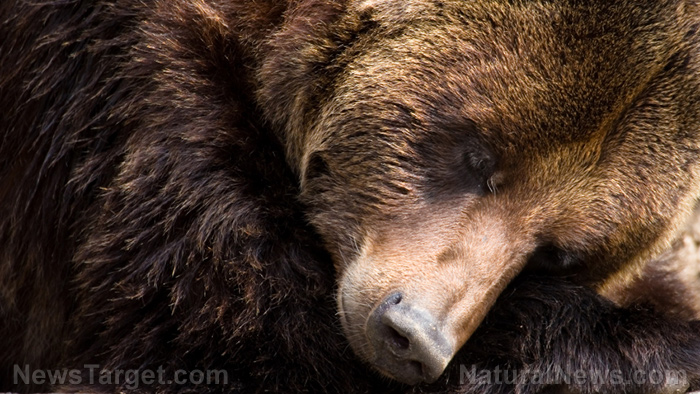
When hiking outdoors, preppers can expect to find wild animals. Bear encounters are common occurrences, especially since humans tend to enter bear territory unintentionally. There is nothing wrong with wanting to explore nature, but you should also learn how to protect yourself from any threats you might face. Stay safe from bear attacks by following this guide to surviving bear encounters. (h/t to PreppersWill.com.)
How to prevent bear attacks
A bear will usually mind its own business, but it is more likely to attack for self-defense when startled by the sudden presence of humans. The probability of an attack increases if the bear is with cubs, is close to its kill zone, or has food stored nearby. Preppers should be mindful of their surroundings to avoid bear attacks. Here are some ways to decrease your likelihood of bear attacks and encounters.
- Make a lot of noise. Loud noises will give bears an early warning of your presence; they are more likely to leave you alone if they know you are coming. This will decrease your risk of suddenly stumbling upon a bear and possibly startling it. You can sing, whistle, clap your hands, or talk loudly when you are out in the wild, especially if you are passing through known bear territory. You can even tie bells to your backpack or hiking gear for continuous noise.
- Set up camp safely. Bears are attracted to the scent of food, so you don't want to keep any food lying around your campsite. Set up your tent at least 100 yards away from your cooking area. Food in your cooking area should also be stored in bear-proof containers when not in use. They can keep your food safe and discourage bears from raiding campsites. You can even use portable electric fences to set up a perimeter around your campsite and your cooking area. (Related: 5 Common dangers to avoid in the wilderness.)
- Bring bear spray. Don't forget to bring a can of bear spray when camping outdoors. Bear spray is specifically designed to repel bears and is much more potent than regular pepper spray. Familiarize yourself with how it works and how to operate the safety switch. If you encounter a bear, you should be able to use it instinctively.
- Do not run. If you come across a bear, the last thing you want to do is to run away from it. Bears are apex predators and running away will only trigger their predatory instinct to chase you down and kill you. Forget about trying to outrun one either; bears can run over 30 miles per hour.
- Avoid provoking bears. If you see a bear, look downwards or to the side. This will tell the bear that you are not a threat. Direct eye contact can be seen as a sign of aggression, while looking away is a sign of submission. If the bear is some distance away, try to maintain that distance while slowly walking around the bear.
- Give the impression of a larger size. Just because you are showing submission, doesn't mean you want to be seen as easy prey. If you are with other people, huddle together in a cluster to give the bear the impression of a larger size. Then, spread your arms high and wide to make your group look even taller. Do this while slowly backing away from the bear.
What to do if a bear attacks you
Different bear species will show varying levels of aggression. Knowing what kind of bear is attacking you is crucial to being able to react in time. Despite their names, fur color is not necessarily the best indicator of bear species as their fur can come in a range of colors.
- Black bears. Black bears are more numerous than brown or grizzly bears and are much more aggressive. If a black bear attacks you, do whatever it takes to fight back. Punch, kick, or bite if you have to. They will see humans as a threat and will attack to eliminate you. Black bears have a flat, "Roman-nose" profile, taller ears and no shoulder hump. Remember, if the bear is black, go fight back.
- Brown and grizzly bears. Grizzly bears are also brown bears, but not all brown bears are grizzly bears. Grizzly bears will leave you alone if they don't see you as a threat, just as brown bears will leave if you remain motionless. If a grizzly bear attacks you, lie face down on the ground with your hands clasped behind your head and neck. Grizzly bears have a pronounced shoulder hump, smaller ears and a "dished" facial profile. Remember, if the bear is brown, go lie down.
Find more tips on how to protect yourself outdoors at Preparedness.news.
Sources include:
Please contact us for more information.














